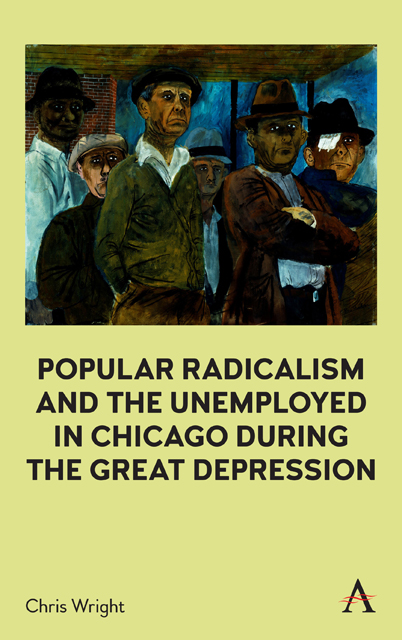Chapter Six - Collective Action
Published online by Cambridge University Press: 09 December 2022
Summary
Historical scholarship since the 1960s has established that during the Great Depression the long-term unemployed were capable of great militancy, on a broad and sustained scale. Roy Rosenzweig, an expert on the subject, says—in what is likely a considerable understatement—that “easily two million jobless workers engaged in some form of activism at some time in the thirties.” Mark Naison's 1983 study Communists in Harlem during the Depression shows that the Communist Party was a major force in Harlem the entire decade, in fact in New York City as a whole. James Lorence's Organizing the Unemployed (1996) makes it equally clear that across Michigan, from Keweenaw County to Detroit, the jobless actively protested the indignities and hardships that were imposed on them. Late in the decade, the Workers Alliance (WA) was still a “dynamic force” in many counties, and by the spring of 1938 over 80 percent of Michigan's WPA workers were members of the United Auto Workers. Demonstration after demonstration in cities across the country—and Chicago in the first five years of the Depression had well over two thousand such—saw upward of ten or twenty thousand people clamor for action by political authorities, risking police brutality in order to force leaders of business and politics to remember the forgotten man.
At the same time, however, social historians since the 1960s have sometimes been at pains to deny that in these years the masses had much interest in radical ideologies. An image is painted of Americans that seems to attribute to them a sort of cultural inertia, political passivity, a stubborn clinging to individualism and the American political system, and a lack of “class consciousness.” Melvyn Dubofsky's 1980 paper “Not So ‘Turbulent Years’: A New Look at the 1930s,” for example, is a classic statement of this perspective. In explaining why (so he argues) “durable working-class radicalism” did not emerge in the Great Depression, Dubofsky invokes the supposed “inability of most workers and their leaders to conceive of an alternative to the values of marketplace capitalism, that is to create a working-class culture autonomous from that of the ruling class.” Workers did not become “a class fully aware of their role, power, and ability to replace the existing system with ‘a better, firmer, more just social order [than] the one to be torn down.’”
- Type
- Chapter
- Information
- Publisher: Anthem PressPrint publication year: 2022



